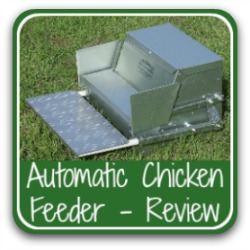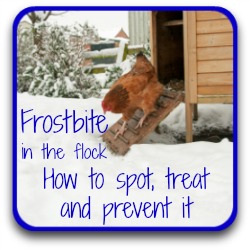- Home
- Summer
Chicken care in summer.
Fact: chickens do not deal well with heat. What can we do to help?
As humans, we adapt to heat. But chickens, who can deal with cold very well, find it much harder to adapt during the summer months.
At 24ºC (75ºF), they can just about manage to cool themselves, but much higher than that and they will need our help to remain at a safe body temperature.
You need to take action long before temperatures reach anything like that high. And, as with everything chicken-related, planning in advance is the best way to keep our chickens safe.
On this page, you'll find a series of articles related to simple steps you can take to keep your flock cool and safe – even when temperatures hit their summer peak.
Don't wait until your flock is showing signs of heat exhaustion. Make plans now. If you wait until they're overheating, you may have left it too late.
It really is that serious.
Could you use a little extra help this summer?
Every year, I send my my "Chicken Digest" subscribers a free, 30-tip printable checklist: simple, practical ideas to keep chickens safe in the heat.
It's not published anywhere else – just one of my little "thank yous" for being part of my chicken keeping community.
How to identify signs of heat stress in your flock
This article (click on the headline or the button) outlines ten ways you can identify when your chickens are in trouble with heat stress.
From the first, most obvious symptoms to those which are so serious your flock will be – literally – in mortal danger, you'll learn what to look for and how to deal with it.
These signs could save your chickens' lives.
6 ways to help chickens keep cool in the heat
Chicken care in summer is largely about keeping the flock cool. This isn't an exhaustive list, but the six steps I cover in the article are simple and quick to implement.
From making sure your chickens keep hydrated, to assessing the best bedding to use when temperatures are high, it's important to plan ahead and not be caught out when there's a sudden rise in temperatures.
Don't leave it too late!
What should chickens drink when the weather heats up?
What is best for chickens to drink in the summer? Is water the answer? And if not, then what?
This article details how chickens drink and why that's important; what temperature drink should be offered at for the best hydration; which watering systems work well; and whether rain water is a healthy option.
Chicken care in summer heat: using electrolytes
One of the best antidotes should your chickens overheat is an electrolyte drink.
This article discusses the evidence for that, details what exactly electrolytes are and why they're important, and has a "recipe" for a home made electrolyte drink which could save your flock's lives.
Make sure you have the ingredients in stock now.
Use watermelon as a natural source of electrolytes
Watermelon has been proven to be one of the most successful ways of keeping chickens hydrated in the summer months.
But do you know which part of the fruit is the most effective? The answer may surprise you!
This article contains that answer, and two simple recipes to make sure your chickens take full advantage.
Freeze those treats!
This is a great way of keeping your chickens both cool and hydrated – and it's simple and fun to do!
In summer, when fruit and veg is plentiful, it's also an inexpensive way of making sure your chickens have a healthy diet.
It's very likely you'll have all the ingredients you need in your pantry or your veggie garden right now!
Can chickens swim?
It's the height of the summer. Your chickens are showing signs of heat exhaustion. Is treating them to a swim likely to help?
This article uses video and physiological evidence to demonstrate whether chickens can swim, whether they like water, and whether a pool is the best place for them to cool off.
And if not, then what is?
Use dust baths
It may seem odd to us, but to a chicken it makes perfect sense. When temperatures rise, fling some earth over yourself!
It's one of the most effective ways for a chicken to reduce its temperature.
This article discusses why, how to make one, and which dust-bathing material has been proven to be best to keep your chickens healthy this summer.
Vacationing with chickens!
This article isn't so much about chicken care in the summer, as your own care! Because we all need a break from time to time...
In it, you'll find information about how to deal with their food and drink while you're away, why pop doors can be a definite bonus, and how to work out whether you can trust anyone else with your flock.
There's also a free download of tasks your chicken-sitters will need to take care of.
Summer care by month.
These articles will lead you through a series of tasks which need doing during each of the summer months. At the end of them, you can be sure your flock will be happy, healthy – and cool!
- Home
- Summer


















